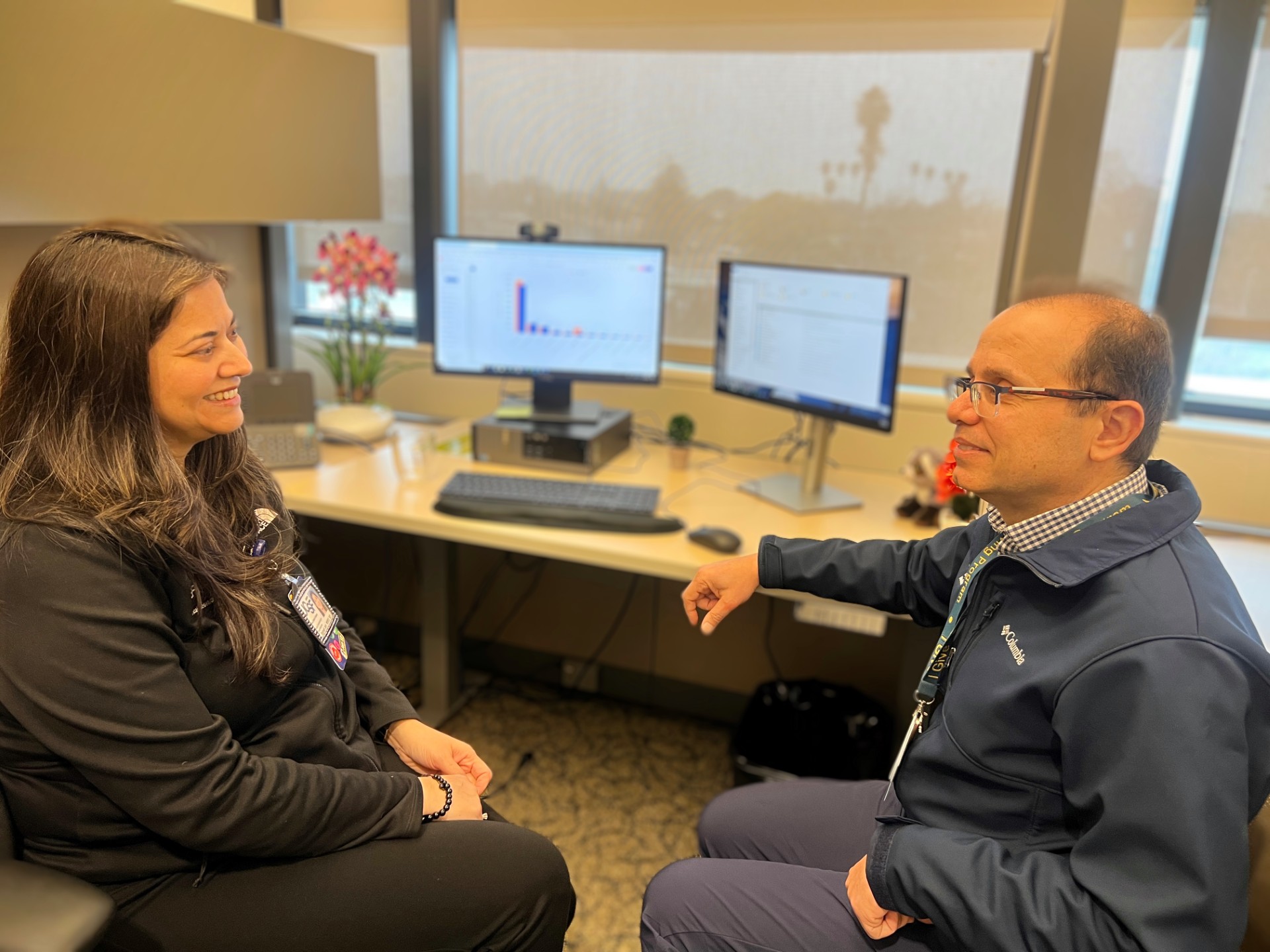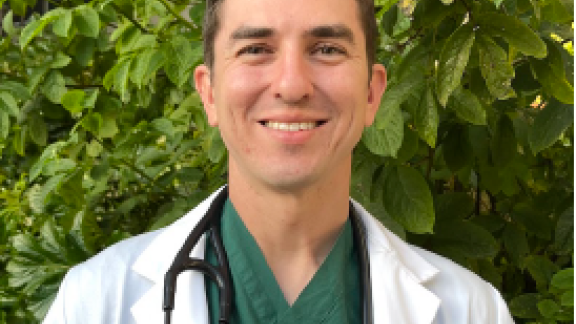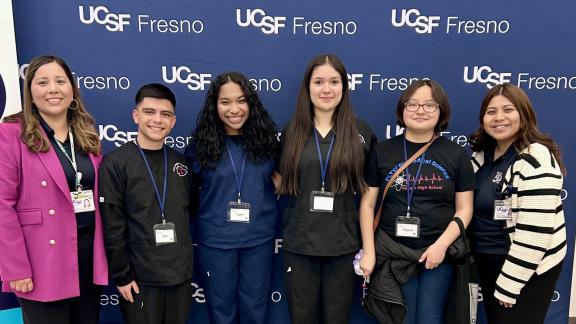Partnership with UC Merced boosts successful grant applications, publications and presentations
Biostatistics are essential to research projects at UCSF Fresno. An arm of statistics, biostatistics are used to interpret medical data to prove or disprove a hypothesis and credibly communicate research findings in a way that meets the standards for publication in peer-reviewed journals. For faculty, fellows, residents and medical students who engage in research at UCSF Fresno, the Clinical Research Center offers biostatistical support that includes:
- Assistance in clinical research design
- Guidance on data collection, quality control and database construction
- Guidance with database management and coding of variables, and
- Assistance with data analysis
Two types of biostatistical support are available 1) in-house and 2) offsite through a partnership with UC Merced’s Biostatistics and Data Support Core Center.

“Biostatisticians are trained to tease out information in a way that separates fact from coincidence and present it in a scientifically acceptable manner,” said Eyad Almasri, MD, assistant dean for Research at UCSF Fresno. “We offer the necessary support in-house and through a unique bidirectional partnership that taps into the expertise of faculty at our sister UC institution and provides UC Merced graduate students with education and real-world experiences.”
UC Merced’s Biostatistics and Data Support Core Center provides a multitude of services including comprehensive statistical and data analysis support to help researchers analyze complex data. To meet the need for support and complexity of projects at UCSF Fresno, the partnership with UC Merced was established in 2018.
“We provide roughly 90 to 100 hours per month of consulting work to clinicians and residents, and we have worked on a wide variety of projects, from assessing the association of diabetes and Valley fever to describing whole blood use in Emergency Department settings,” said Alec Chan-Golston, PhD, assistant professor of Public Health at UC Merced and director of the Health Sciences Institute Biostatistics and Data Support Core Center. “This has been an incredible and successful collaboration, resulting in numerous publications and presentations at national conferences.”
“Working closely with UCSF Fresno clinician researchers to support their projects was a top priority when I founded the Core and establishing a solid relationship with their departments is one of the things I'm most proud of,” said Sidra Goldman-Mellor, PhD, MPH, associate professor of Public Health at UC Merced and founding director of the Biostatistics and Data Support Core Center. “The collaborative work between the Biostats Core and UCSF Fresno researchers has resulted in numerous publications, grant applications, and has been a productive and scientifically rewarding experience for both parties.”
On-site support at the UCSF Fresno Clinical Research Center (CRC) has assisted with various projects including a study investigating whether radiographic characteristics can distinguish lung nodules due to coccidiomycosis (Valley fever) from those caused by lung cancer or an investigation looking at predictors of COVID-19 infection outcomes in patients with non-alcoholic fatty liver disease, among others.
“Residents, fellows, faculty and even SJV PRIME medical students come to the CRC for help with designing studies, inputting and analyzing data and reviewing abstracts,” said Ratnali Jain, MBBS, MS, with the Clinical Research Center. “This biostatistical support enables researchers at UCSF Fresno to publish and present their data.”
UCSF Fresno was established 50 years ago with a clear mission to respond to the severe shortage of physicians in California’s San Joaquin Valley and to address the health needs of the region. As a clinical campus of the UCSF School of Medicine, UCSF Fresno accomplishes these goals through a fourfold mission of medical education, patient care, research and community partnerships. Addressing health issues specific to Valley communities is a research priority.
The establishment of the Clinical Research Center in 2013 consolidated research at UCSF Fresno into one facility. The addition of services in recent years enabled the CRC to take on more clinical trials, including being the first study site in some national and international trials. The CRC also is uniquely positioned to effectively manage outpatients with infusion and other functions as well as meet the needs of study participants with language and transportation barriers by taking follow-up visits directly to participants in outlying communities.
Researchers at UCSF Fresno looking for biostatistical support should contact the Clinical Research Center via the Biostats Request Portal or for information about clinical trials currently available at the CRC, email [email protected]





